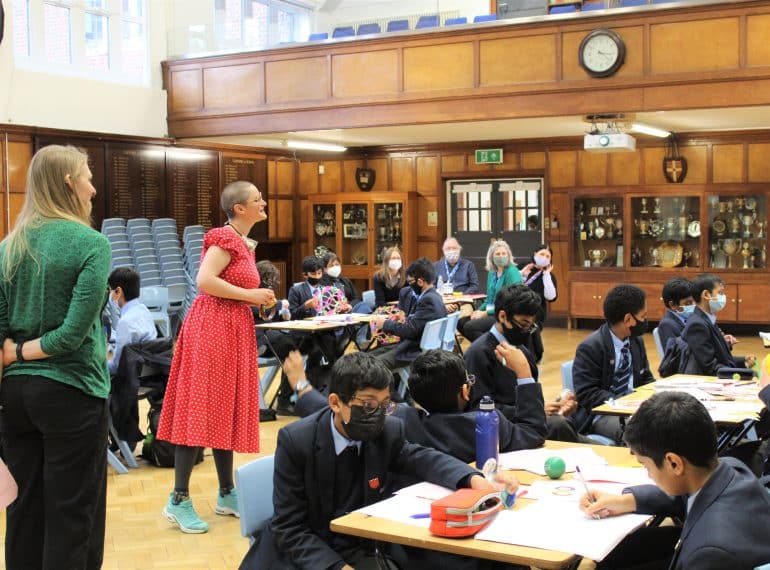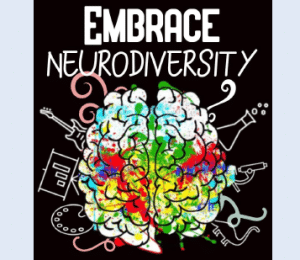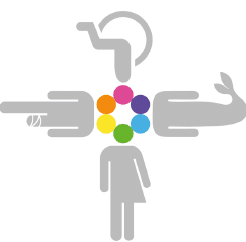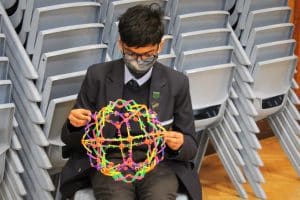From stereotypes to stimming: workshop helps boys understand and accept neurodiversity

Two academics who discovered they were autistic as adults explained how they and other neurodivergent* people experience the world in a special workshop at the School.
Dr Chloe Farahar and Dr Annette Foster from the University of Kent delivered the workshop to a select group of pupil leaders. The event was arranged in line with the objective set out in Building on Distinction, the 2021-2025 School Plan, of helping Elizabethans “change things for the better, both in [their] own community and in society at large”.
The pupil representatives will now prepare an assembly for the whole of Year 8 to share what they have learned.
 Assistant Head (Pupil Progress) Sarah Westcott said: “This workshop was an important insight for our students into the lived experience of two members of the neurodiverse community.
Assistant Head (Pupil Progress) Sarah Westcott said: “This workshop was an important insight for our students into the lived experience of two members of the neurodiverse community.
“Dr Farahar and Dr Foster candidly spoke about their experiences as autistic people, and during their engaging workshop prompted the boys to confront the many common stereotypes and myths which exist around those who are neurodivergent.
“This workshop is part of the wider work we are doing to encourage pupils to think about the diverse communities we all live in and the part they have to play in making society open and inclusive to all,” Dr Westcott added.
Those invited to the workshop were: form captains and deputies from Years 7 and 8; School Vice-Captains and Equality, Diversity & Inclusion Ambassadors Heemy Kalam and Victor Angelov, of Year 12, and Kevin Gunawardena, also of Year 12, who is writing a dissertation for his Extended Project Qualification on How can neurodiverse lives become more integrated within society?
 Dr Foster and Dr Farahar run Aucademy, a platform for delivering training.
Dr Foster and Dr Farahar run Aucademy, a platform for delivering training.
Dr Foster, who is autistic, dyslexic, dyspraxic and with attention differences, was diagnosed at the age of 39, while Dr Farahar was diagnosed at the age of 32, after, as she says, “a lifetime of being told I am ‘weird’, ‘odd’, ‘stand-offish’ and ‘unapproachable’”.
In their richly illustrated presentation, they helped pupils understand what neurodiversity means.
Through hands-on activities, the boys were taught about the ways in which people with autism, dyslexia and attention differences experience the world.
They learned, for example, about:
 ‘Stimming’ – self-stimulatory behaviour involving repeated actions or activities that either excite or calm the sensory nervous system,
‘Stimming’ – self-stimulatory behaviour involving repeated actions or activities that either excite or calm the sensory nervous system,- The role of understanding and kindness. (The presentation finished with a quotation from the late Archbishop Desmond Tutu: “Do your little bit of good where you are; it is those little bits of good put all together that overwhelm the world.”)
- Stereotypes – exploring the differences between how autism is often portrayed in the media and the reality. The presentation pointed out, for example, that contrary to stereotypes, autistic people are rarely mathematics savants.
Following the workshop, Dr Farahar wrote to Dr Westcott: “Annette and I were so impressed with the QE pupils – we were really buoyed by their kindness and consideration of difference.”
* The term ‘neurodiversity’, which was coined in 1998 by sociologist Judy Singer, defines brain differences in areas such as sociability, learning, attention and mood as normal, rather than deficits or disorders.
